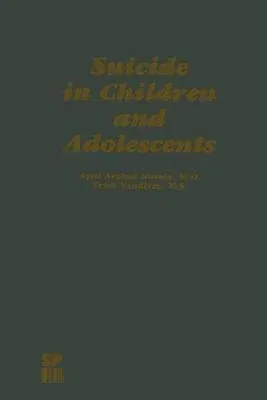Suicide in Children and Adolescents (Softcover Reprint of the Original 1st 1984)Paperback - Softcover Reprint of the Original 1st 1984, 19 April 2012

Qty
1
Turbo
Ships in 2 - 3 days
In Stock
Free Delivery
Cash on Delivery
15 Days
Free Returns
Secure Checkout
Part of Series
Child Behavior and Development
Print Length
284 pages
Language
English
Publisher
Springer
Date Published
19 Apr 2012
ISBN-10
9401177945
ISBN-13
9789401177948
Description
Product Details
Book Edition:
Softcover Reprint of the Original 1st 1984
Book Format:
Paperback
Country of Origin:
NL
Date Published:
19 April 2012
Dimensions:
22.86 x
15.24 x
1.63 cm
ISBN-10:
9401177945
ISBN-13:
9789401177948
Language:
English
Location:
Dordrecht
Pages:
284
Publisher:
Weight:
408.23 gm

